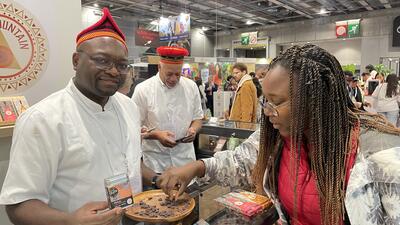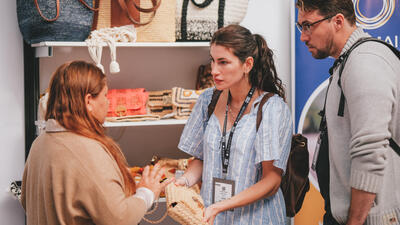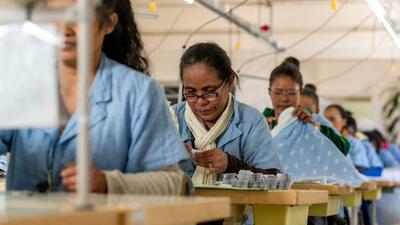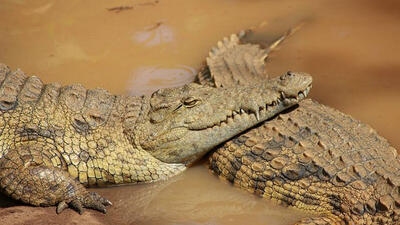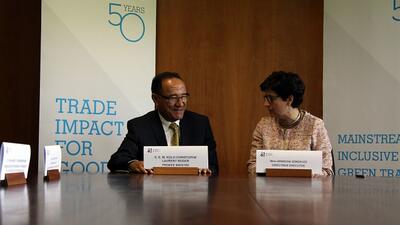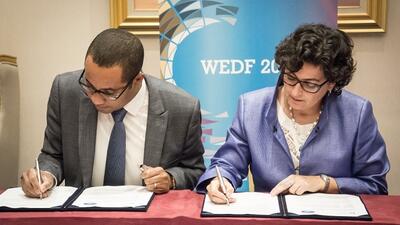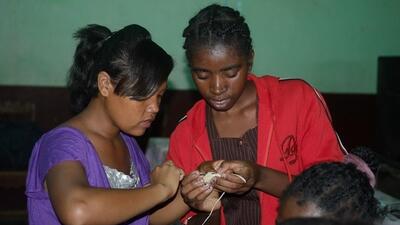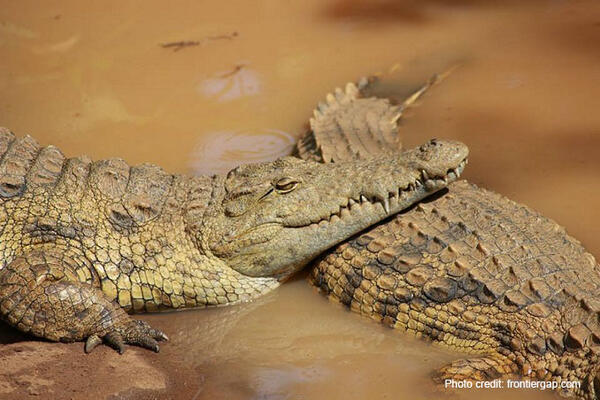
ITC and Kering join forces to support sustainability of Madagascar crocodile trade
(Geneva/Paris) – Kering and the International Trade Centre (ITC) announced today a new collaboration to develop a multi-year programme to support the monitoring and sustainable management of the trade in Nile crocodiles from Madagascar.
The formation of the Madagascar Crocodile Conservation and Sustainable Use Programme (MCCSUP) follows the recommendation by the Standing Committee of the Convention on International Trade in Endangered Species of Wild Fauna and Flora (CITES) to re-open the trade in Nile crocodiles from Madagascar. This decision follows the entry into Madagascan national law of specific legislation for managing the species.
The programme’s goal is to support sustainable trade that contributes to economic opportunities, local livelihoods and the long-term conservation of crocodiles and their habitats.
Kering and ITC will provide technical support and financial resources in collaboration with the Crocodile Specialist Group of the Species Survival Commission of the International Union for Conservation of Nature (CSG). The MCCSUP will facilitate targeted activities in Madagascar to improve sustainable trade in crocodiles and help support the country’s obligations under CITES.
The MCCSUP will cover a range of projects that will deliver data and recommendations in a series of public reports that will drive the overall sustainability of the trade in Madagascar crocodile. This will include assessing the status of wild populations, monitoring wild egg collection for crocodile ranching operations, and examining options for enhancing benefits for local livelihoods from the trade.
The programme will be implemented through the CSG, which will work with the Madagascar Scientific and Management Authorities for CITES, the Ministry of Environment, Ecology and Forests, and the University of Antananarivo, as well as national and international experts. Two significant elements of the programme’s implementation will be the support of the creation of a Crocodile Management Unit (CMU) that will act as a hub for all crocodile management-related issues and a programme of student research that will focus on crocodile biology, ecology, management and conservation.
‘At Kering we are focused on supporting sustainable production systems across our global supply chain and ensuring sustainable sources of raw materials,’ said Marie-Claire Daveu, Chief Sustainability Officer and Head of international institutional affairs at Kering. ‘As this new market for sourcing is opening up, we are pleased to be able to support the capacity building that will underpin the implementation of best practices in management of crocodile conservation, sustainable use and trade in Nile crocodiles from Madagascar.’
‘This is the second Public-Private Partnership (PPP) between Kering and ITC in which our two organizations are designing solutions for sustainable sourcing of biodiversity-based products from developing countries,’ said ITC Executive Director Arancha González, ‘The PPP is an effective and innovative way to leverage both private and public investment and skills. It will help increase incomes and safeguard an important natural resource for marginalized rural communities in Madagascar,’ she said.
‘We welcome this collaborative effort that will ensure compliance with CITES requirements for legality and sustainability, while also delivering tangible benefits for local communities,’ said John E. Scanlon, Secretary-General of CITES. ‘We are most encouraged by the depth of cooperation between Kering, ITC, IUCN Crocodile Specialist Group and Madagascar's CITES Authorities in supporting initiatives that will benefit the Nile crocodile and its habitat and the people living close to them,’ added Scanlon.
About the International Trade Centre
ITC is the joint agency of the World Trade Organization and the United Nations. ITC assists small and medium-sized enterprises in developing and transition economies to become more competitive in global markets, thereby contributing to sustainable economic development within the frameworks of the Aid-for-Trade agenda and the Millennium Development Goals.
A world leader in apparel and accessories, Kering develops an ensemble of powerful Luxury and Sport & Lifestyle brands: Gucci, Bottega Veneta, Saint Laurent, Alexander McQueen, Balenciaga, Brioni, Christopher Kane, McQ, Stella McCartney, Sergio Rossi, Boucheron, Dodo, Girard-Perregaux, JeanRichard, Pomellato, Qeelin, Puma, Volcom, Cobra, Electric and Tretorn. By ‘empowering imagination’ in the fullest sense, Kering encourages its brands to reach their potential, in the most sustainable manner.
Present in more than 120 countries, the Group generated revenues of €9.7 billion in 2012 and had 33,000 employees at year end. The Kering (previously PPR) share is listed on Euronext Paris (FR 0000121485, KER.PA)




